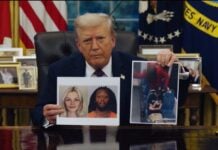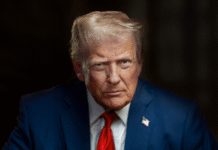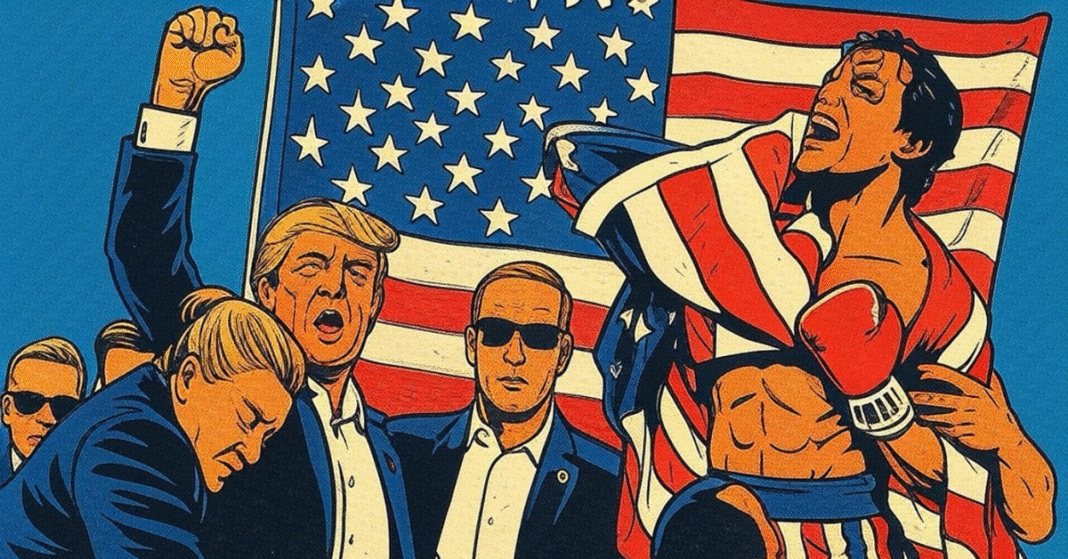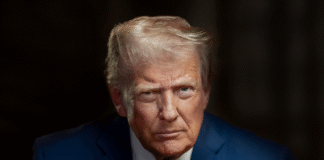In 1985, the Berlin Wall was still standing, Ronald Reagan’s America was flexing its muscles, and the Cold War was being fought not only with missiles and diplomacy, but also on the big screen. That year, Sylvester Stallone delivered a one-two punch that no one has forgotten: Rambo: First Blood Part II and Rocky IV. Two knockout blows to communism and a hymn to patriotism so powerful that the President of the United States himself cited them as symbols of the American fighting spirit.
But Rocky IV was more than just a movie—it was a manifesto in boxing gloves for Western values: freedom, willpower, personal sacrifice. No compromises, no filters. On one side, a man fighting for himself and his dignity; on the other, a system that crushes the individual in the name of the collective. Rocky versus Drago was more than a fight—it was the embodiment of two worldviews in open conflict.
In the Soviet Union, official distribution was, of course, banned. But in the 1980s, videotapes and the black market began chipping away at the Wall long before it fell. Hand to hand, those tapes reached Soviet living rooms. For many viewers, it wasn’t just a sports drama—it was a window into a world where a man could say “no” to the system, reject the role assigned to him, and choose his own destiny.
Drago, with his robotic coldness and inhuman perfection, may have been a caricature, but it was one in which the face of a power demanding blind obedience—and willing to sacrifice human souls in the name of efficiency—was all too recognizable.
And then there was that ending. Rocky, battered and bleeding, standing before a Soviet crowd, declaring: «In the ring, there were two of us killing each other, but I think it’s better this way than millions of people. If I can change, and you can change, everybody can change!».
Hollywood rhetoric? Maybe. But in those years of Perestroika, in a country beginning to crack, those words sounded like a forbidden invitation: to imagine that a different tomorrow was possible. This wasn’t just cinema—it was soft power at its most potent. A weapon that struck without making a sound, capable of slipping universal values under the skin of those who had been raised on bread and propaganda.
That lesson still holds today, in an era when the West allowed itself to be anesthetized by political correctness—by a woke culture that preaches inclusivity while enforcing suffocating conformity. Rocky IV didn’t fear being divisive, because the truth is divisive by definition. And today, in the midst of the post-woke backlash, audiences are once again seeking stories that have the courage to say clearly where they stand.
Which brings us naturally to Donald Trump. Because Rocky’s philosophy—take the hits, go down, get back up, and hit back harder—has always been Trump’s philosophy. The image that captures this parallel is the one from Butler, Pennsylvania, taken moments after the assassination attempt: his face streaked with blood, his fist raised, the American flag behind him.
It’s a shot that could have been lifted straight from the Rocky IV poster—Stallone wrapped in the flag after defeating Drago. Not a coincidence, but a symbolic echo worth more than a thousand speeches: one man standing alone against a system determined to bring him down, yet unable to do so.
Trump and Stallone are longtime friends, and they share the same underlying narrative: the individual who refuses to bow, who takes the blows and turns them into fuel for the next round. Whether the ring is in Moscow or on a stage in Pennsylvania, the principle is the same—and the audience recognizes it instantly. Because this isn’t just about boxing or politics; it’s about identity.
Today, as the West struggles to find its voice, Rocky IV remains a stark reminder that freedom, determination, and personal dignity are non-negotiable. That universal consensus is a useless and dangerous mirage. And that real change never comes from half-measures, but from the will to fight—again and again—even when all seems lost.
If Rocky could change, if even a Soviet audience could change, then so can we—provided we stop apologizing for our values and return to defending them as they deserve: with the hard punches of truth.





















